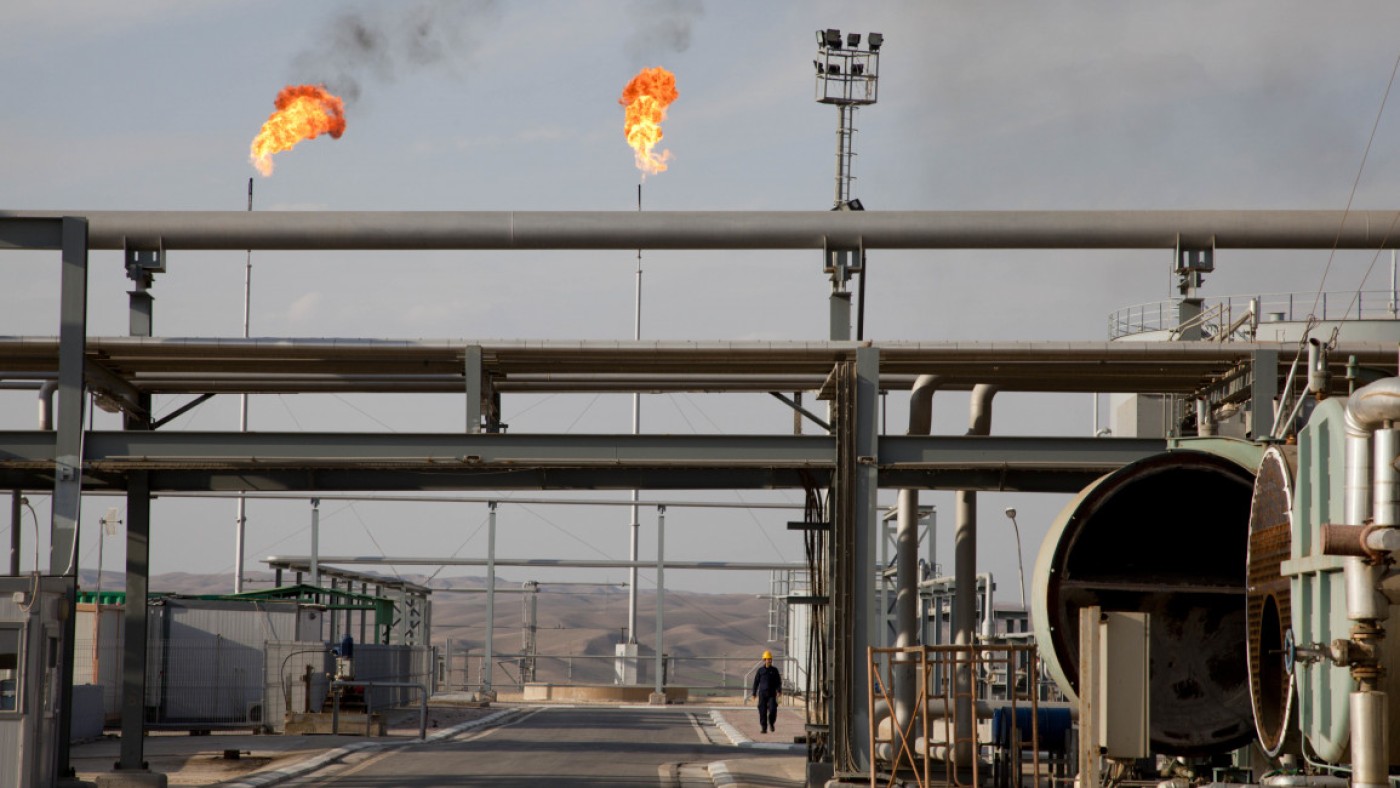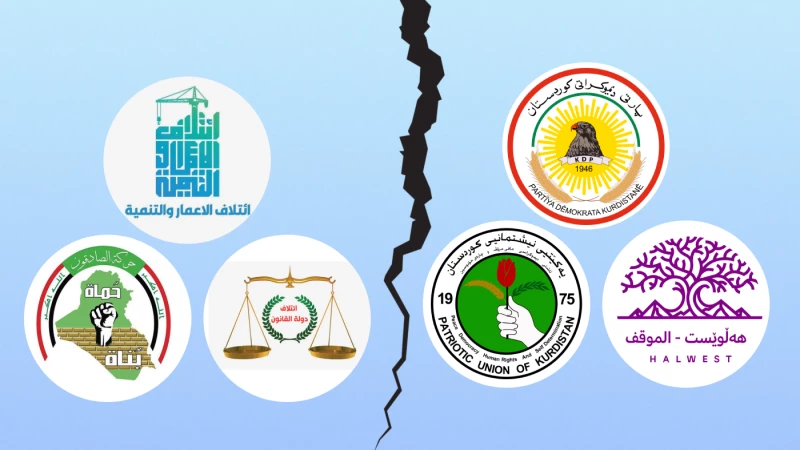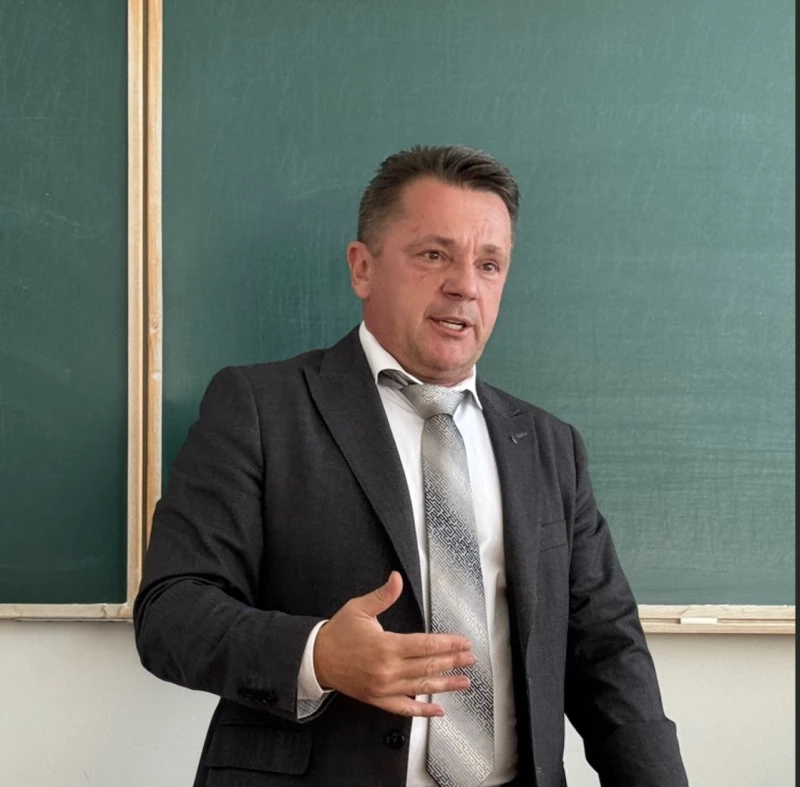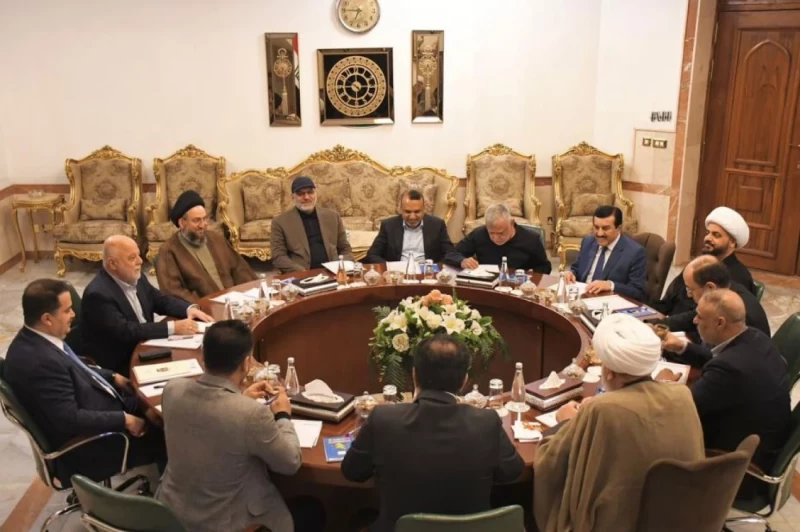Iraq’s power grid suffers from chronic and complex problems that have made supplying energy to this oil-rich country unstable and expensive.
Both citizens and the state have been burdened as a result, while a development plan drafted to improve the situation five years ago has not been implemented for a variety of reasons. The most significant is that there simply is not enough fuel – gas – to operate power stations and turbines.
Iraq will in 2024 need 24 billion cubic meters of gas to meet domestic consumption and operate its stations, of which 60% will be local production according to Iraqi authorities but 45% according to the Organization of Petroleum Exporting Countries (OPEC).
The remainder will be imported through pipelines or as liquified natural gas (LNG) due to the lack of infrastructure in the country.
For getting this gas, Iraq has focused on two channels. The first is via pipelines due to it being easier to receive and cheaper compared with LNG.
The second is on Iran due to its proximity as well as the existence of the sixth Iranian gas pipeline, IGAT-6, in the province of Khuzestan along the border between the two countries. The pipeline was commissioned in 2018.
Gas exports from Iran to Baghdad began in 2016 and to Basra in 2017, with 70% going to the former and 30% to the latter. Gas prices were considered in line with Middle East rates and the volume reached 8 billion cubic meters at a cost of 2.7 billion dollars.
However, not even two years had passed before US president Donald Trump imposed sanctions on the Central Bank of Iran to prevent it from receiving any Iraqi payments related to gas exports. As a result, Iraq’s debts for continued non-payment for Iranian energy imported into the country piled up.
As of late 2023, this amount has risen to $12.5 billion despite there having been 21 US waivers granted on Iraq from sanctions on Iran over the past six years.
The waivers have enabled Iraq to repay some 20% of the debt accumulated, which Iran however considers insufficient.
Iraq signed a Memorandum of Understanding (MoU) with Iran involving an exchange of Iranian gas for Iraqi oil to pay off debts accrued. The agreement entailed Iraq’s exporting 100,000 barrels of oil per day to Iran for five years. This agreement is expected to be implemented soon.
However, the problems experienced by Iran and Iraq in exporting and importing gas do not end in Iran. Though Iran is an oil-rich country, its gas surplus is not more than 9% of its production and fluctuates during the different seasons of the year. At some points, there is no surplus whatsoever.
Iran already has a shortage of energy supplies, especially in its northern provinces. It imports electricity from Turkmenistan, Azerbaijan, and Armenia while exporting it to Iraq and Afghanistan. It also imports gas from Turkmenistan and exports it to Azerbaijan, Iraq and Armenia but with a clear lack of investment and quality, especially in Phases 6 to 14 of the South Pars fields.
Iraq instead has no strategic surface or underground gas reserves. It also does not publish accurate, reliable gas production figures.
Iraqi oil ministry data is essentially always 30% higher than the figures released by other energy organizations such as OPEC. It does not release accurate figures on the amount of gas the country imports on a daily basis or on expected future quantities.
At COP28 in UAE earlier this month, the Iraqi oil ministry claimed it would exploit 100% of the gas produced in its fields by 2028. Previous reports had stated that it would be exploiting only 75% as of that date and does not currently have gas infrastructure that could assist with increasing production or substantial investment that could cover gas output deficits, even as concerns a delayed project with the French company Total.
The US informed Iraq in early 2023 that its waivers exempting Iraq from sanctions on Iran would not last longer than the current year. However, in November the Biden administration extended the sanctions waiver for an additional 120 days to enable Iraq to continue buying electricity from Iran. The waiver also kept in place a provision according to which part of the electricity proceeds can be transferred to accounts in Oman and then converted into other widely traded currencies to buy non-sanctioned products.
Meanwhile, Iraq has been trying to find a rapid solution to its problem. The solution it came up with is a tripartite swap method involving exchanging gas using different countries.
Three countries in the region began exporting Turkmen gas through Iranian territory to Azerbaijan about two years ago.
On the proposal of Iranian advisors to their Iraqi counterparts, Iraq decided to apply the same swap method.
A Memorandum of Understanding was signed in recent months between Iraq and Turkmenistan that stipulates that Iran will continue exporting the same previous annual amount of gas it currently does to Iraq - about 9 billion cubic meters – and then Turkmenistan will export an equal amount. The Central Bank of Iraq will pay the Central Bank of Turkmenistan, with the related costs expected to rise to around $3.5 billion by the end of 2024.
Iran will be helped in this by the presence of two gas pipelines between Iran and Turkmenistan with a total pumping capacity of 20 billion cubic meters annually, of which Iran currently uses about 40%. It will use the remaining amount in the swap deal between Iraq and Turkmenistan.
In line with this agreement, the agreement to trade gas in exchange for oil will be transformed into an agreement to pay the debts owed by Iraq using crude and black oil.
However, Iraq requires significant allocations to create infrastructure in the field of gas and attract investment to develop the fields it has.
This is needed to produce the highest quantity of gas possible to meet its domestic needs – such as through building of strategic underground storage facilities with surface tanks with a capacity of up to 7 billion m3 - as well as to develop local production mechanisms in line with the agreement.
The swap agreement with Turkmenistan is simply a way to avoid the problem of US sanctions but does not solve the crisis in gas imports and supply, however, and thus does not solve the Iraqi electricity problem.
It is key, in any case, that the Iraqi government not rely on presenting unrealistic, overly optimistic outlooks as this will further complicate an already complex situation.



 Facebook
Facebook
 LinkedIn
LinkedIn
 Telegram
Telegram
 X
X


